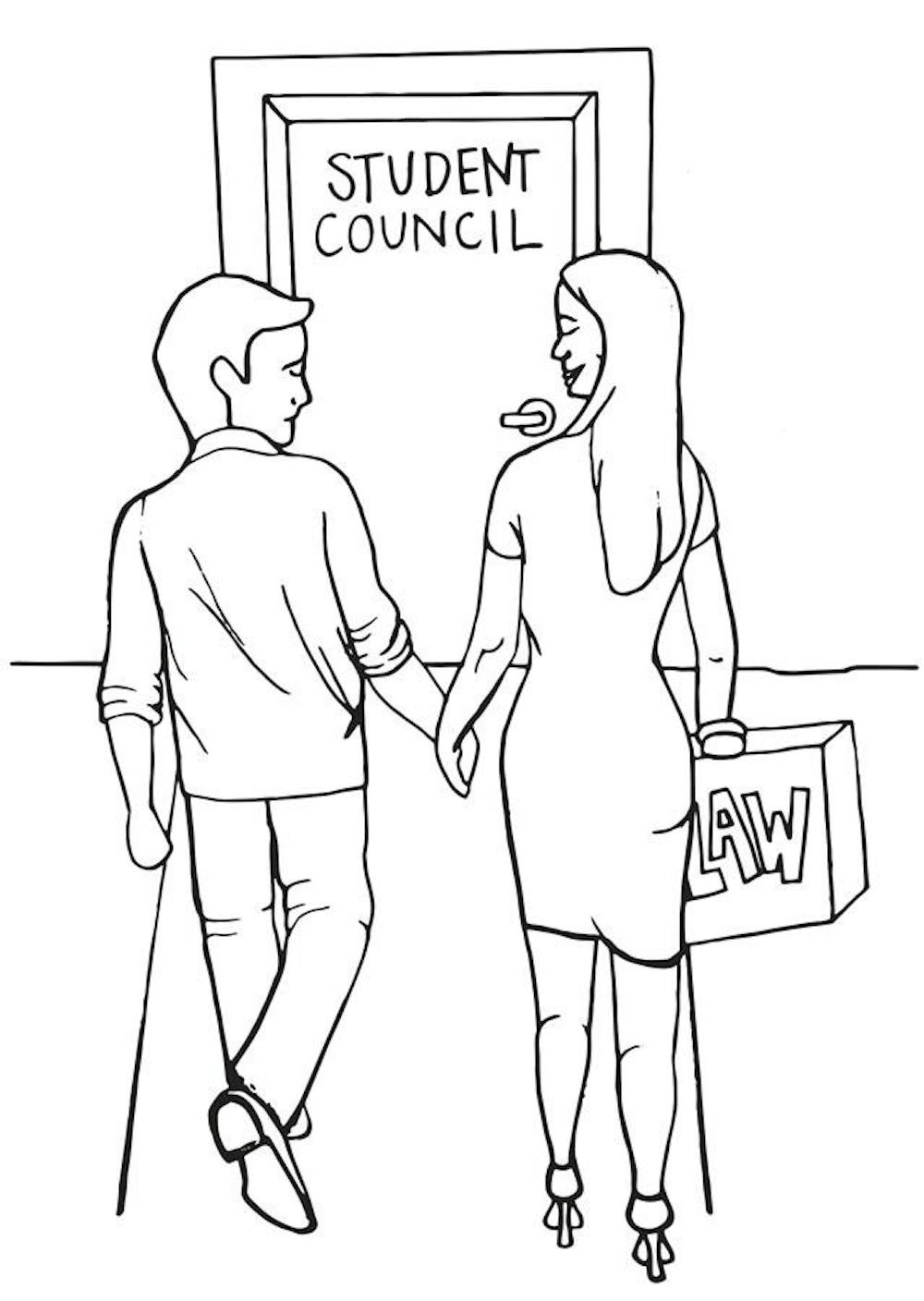College isn’t the real world.
At least, the legal systems aren’t real.
Earlier this year, Gov. Pat McCrory, R-N.C., signed a law allowing university students to be “represented by an attorney or non-attorney advocate” in campus courts.
In North Carolina, as well as many other states throughout the United States, students in universities are often tried for crimes such as theft, harassment or rape in campus courts.
Sometimes the campus court system can be confusing for students.
It is structured differently from what we see on “Law and Order,” with students handling some cases and faculty handling others.
Sometimes a mix of the two are present.
The burden of proof can also vary.
Usually it’s easier to be convicted in a campus court than a traditional criminal court.
For these reasons, we welcome the allowance of lawyers into the campus court system.
As long as campus courts continue, Indiana should consider making similar changes.
But we’re not sure that campus courts should remain in their current form.
It isn’t appropriate to hold trials for crimes like rape within the school system.
Campus courts contribute to a norm in which students aren’t treated as real adults.
Students learn best when there are consequences for their actions.
Often, however, high school students have more real-life implications than we face at IU.
If you’re in high school and of a sufficient age to go to prison, you will more often than not.
The administrators will call the police, and you’ll be escorted out for being drunk, violent, crazy or whatever.
In college, the system is different.
Students who break laws on campus, such as drinking, drug use and more serious crimes like rape, are often referred to campus courts instead of the traditional court system.
Campus courts require a lower burden of proof than criminal courts, but they also dole out less severe sentences.
Often students are expelled or suspended for crimes that might require jail time if they were committed by someone other than a student.
This is a roundabout way to protect students privileged enough to attend an expensive university.
There are countless college-age students across the country who aren’t fortunate enough to attend institutions of higher education, and these free passes only contribute to inequality in the U.S.
If students are caught breaking the law, they’re given a slap on the wrist and some sort of educational activity to carry out, such as attending a class or making a bulletin board.
There’s something inherently wrong with this system.
While the law in North Carolina is the first of its kind in the country, it’s representative of the culture we’ve bred in universities — a culture where you can break the law without any real, tangible, foreseeable consequences.
And if these larger crimes such as theft or rape fall under the same “legal” category within university systems, that’s only enhancing the problem.
Students are adults attending a university and should be treated as such.
If you break the law, we feel you shouldn’t need a campus attorney. You should be charged as an adult in an adult world.
— opinion@idsnews.com
Follow the Opinion Desk on Twitter @ids_opinion.
Kangaroo court on campus

Get stories like this in your inbox
Subscribe




